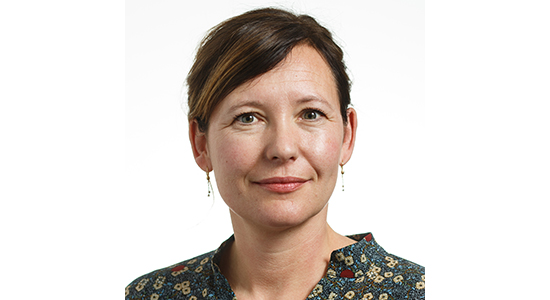Complexity and Big Data group
Health is a complex phenomenon and the aim of the research group is to study the social and biological factors determining health and disease and to elucidate the underlying behavioral, psychological, and physiological mechanisms that might explain these effects.

The research group works with large national and international datasets and benefits from the unique ability to link different registers in Denmark. The group includes researchers with different scientific backgrounds and employs a wide variety of epidemiological research methods.
Our research is guided by the following objectives
- Investigating health consequences of the accumulation of social adversity across the life span and identifying sensitive periods and vulnerable groups of individuals
- Documenting the public health problems related to smartphone interrupted sleep and investigating if smartphone interrupted sleep results in a disruption of our basic biological rhythms and health problems.
- Investigating positive organizational and work environment factors that may protect the worker and promote health and well-being
- Investigating the physiological, behavioral and psychological mechanism that can explain the link between social adversity, stress and health outcomes
Our current research covers the health effects of the following:
Childhood adversities
The research program utilizes unique register-based data sources with high-resolution data from infancy into adult life to uncover the impact of childhood social adversities on morbidity and mortality across the life span.
Website: danlife.ku.dk
The SmartSleep Program
The widespread use of smartphones at night is a matter of public health concern. The SmartSleep program is aimed at documenting the health consequences of smartphone interrupted sleep and providing the evidence base for large-scale interventions.
Website: smartsleep.ku.dk
Working environment resources
The research program aims to identify organizational and work environment factors that may protect the worker and promote health and well-being and determine the mitigating effects of workplace resources on changes in the health and well-being of employees exposed to physical or psychosocial demanding work.
Contact: Amar Jayant Mehta, Jimmi Mathiesen and Naja Hulvej Rod
Standing together – at a distance
The research program is aimed at documenting the public-health effects of the COVID-19 pandemic, with a specific focus mental health. The project is a citizen-driven initiative with an emphasis on continuous, direct feedback from the public.
Contact: https://coronaminds.ku.dk/english/
To embrace complexity in Epidemiology we actively explore new data sources (e.g. Smartphones and GPS), incorporate systems thinking and leverage the knowledge across disciplines. We also aim at bridging the flexibility and insights obtained from artificial intelligence methods with the rigor and theoretical foundation of causal inference.
Sufficient Cause Learning
We are developing ‘Sufficient Cause Learning’ to bridge the epidemiological theory of sufficient causes and causal inference with a novel machine learning approach for interpreting artificial neural networks. With this approach, we may come up with new hypotheses of disease etiology. Such hypotheses would need to be rigorously tested using causal models in new cohorts, and hopefully, some of these generated hypotheses of complex interacting causes may lead us to new or more effective and targeted health interventions.
Contact: Andreas Rieckmann
Bridging prediction modelling and causal inference
In this project, we aim to connect method developments in prediction modelling and causal inference. We believe that methodological advances made within each area could enrich that of the other. For instance, one challenge of precision medicine and precision public health is to estimate the effect caused by a factor at individualized levels – which in fact could be done via the use of prediction models. In this regard, we think that innovative methods helping researchers address current challenges in public health can be born from bridging separated worlds of knowledge.
Contact: Long Nguyen
We are responsible for the Danish Life Course Cohort Study (DANLIFE) and the Well-being in Hospital Employee (WHALE) cohort. We are also collecting high-resolution tracking data and comprehensive clinical data in the SmartSleep Study
The group is a partner in the Copenhagen Stress Research Centre, the Integrated Datasets for Research on Ageing (IDEAR) network and the CovidMinds network.
Researchers
| Name | Title | Phone | |
|---|---|---|---|
| Jeroen Floris Uleman | Assistant Professor | +4535320117 | |
| Leonie K. Elsenburg | Associate Professor | +4535323117 | |
| Long Nguyen | Associate Professor | +4535335402 | |
| Tjeerd Rudmer De Vries | Postdoc |

